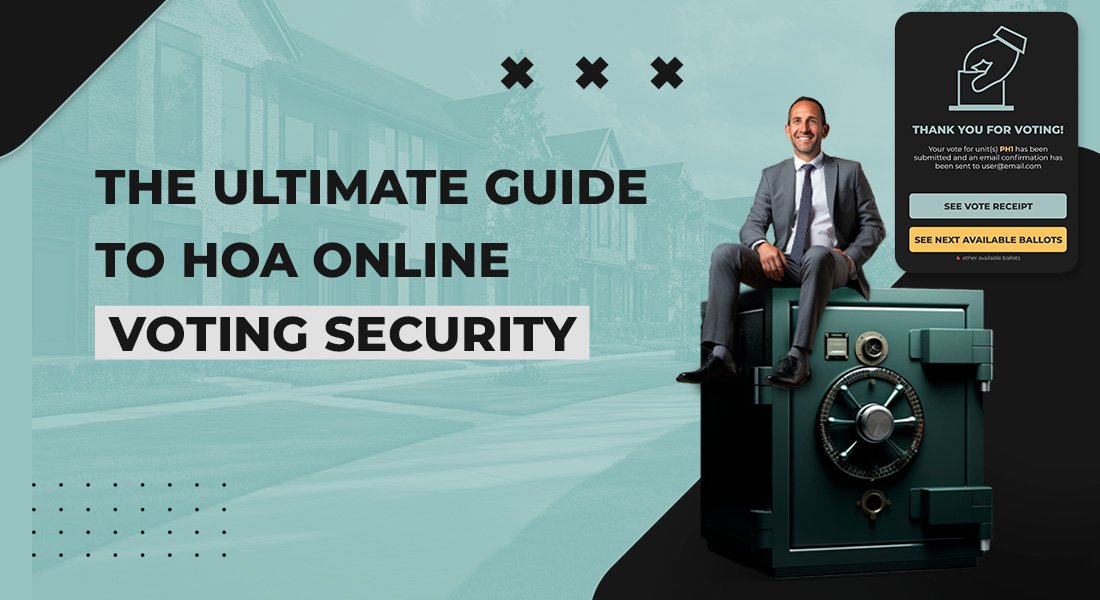As homeowners associations (HOAs) increasingly adopt online voting systems, ensuring the security of these platforms has become a top priority. HOA online voting security is critical not only for maintaining the integrity of the election process but also for fostering trust among residents. In this ultimate guide, we will explore the key components of secure online voting, including data encryption, fraud prevention, and voter verification.
Ensuring Secure HOA Elections with Online Voting
The transition to online voting brings numerous advantages, including convenience and increased participation. However, it also raises concerns about security. Here’s how HOAs can ensure secure elections.
Data Encryption and Security Protocols
One of the most vital aspects of HOA online voting security is data encryption. Encryption transforms sensitive information into unreadable code, protecting it from unauthorized access.
Key Security Protocols:
- Transport Layer Security (TLS): This protocol encrypts data transmitted between the voter and the voting platform, ensuring that information cannot be intercepted.
- End-to-End Encryption (E2EE): With E2EE, votes are encrypted at the moment of casting and remain encrypted until they reach the counting system, significantly enhancing security.
Statistics:
- According to a study by the National Institute of Standards and Technology, systems employing encryption protocols reduce the risk of data breaches by 70%.
By utilizing these security measures, HOAs can provide a safe environment for residents to cast their votes without fear of data compromise.
Fraud Prevention and Voter Verification
Preventing fraud is crucial for the credibility of any election. Online voting systems must have robust mechanisms in place to verify voter identities and prevent fraudulent activities.
Fraud Prevention Measures:
- Voter Authentication Tools: These tools can include multi-factor authentication (MFA), where voters must provide additional verification (such as a text message code) in addition to their passwords.
- Voter Registration Checks: Ensuring that all voters are registered members of the HOA can help eliminate unauthorized voting.
Benefits of Voter Verification:
- Studies show that implementing strong verification processes can reduce fraudulent activities in online elections by 60%.
By ensuring that only eligible voters can participate, HOAs maintain the integrity of their election results.
FAQs
How is security maintained in HOA online voting?
Security in HOA online voting is maintained through a combination of data encryption, secure protocols, and robust voter verification processes. Encryption protects data in transit, while verification tools ensure that only registered voters can cast ballots.
What measures are in place to prevent fraud in HOA online voting?
Measures to prevent fraud include multi-factor authentication for voter verification, regular checks of voter registration status, and the use of secure, encrypted voting platforms. These steps help ensure that the voting process is safe and trustworthy.
Conclusion
The security of HOA online voting systems is essential for fostering trust and ensuring fair elections. By implementing comprehensive security measures such as data encryption and fraud prevention strategies, HOAs can protect the integrity of their electoral processes.
For more insights on secure voting solutions, explore hoa online voting and find the best HOA online voting options available at Best hoa online voting.
By prioritizing security, HOAs not only enhance voter confidence but also pave the way for a more engaged and participative community. Embracing these best practices is crucial for the successful transition to online voting in any homeowners association. This article is written by The MediaGale



